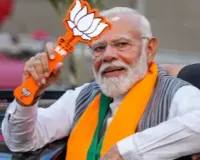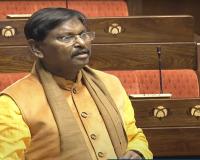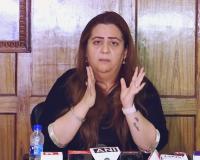
SC Rejects Pleas Seeking Cross-Verification of Votes Cast Using EVMs with VVPAT
New Delhi: The Supreme Court on Friday rejected pleas seeking complete cross-verification of votes cast using Electronic Voting Machines (EVMs) with Voter Verifiable Paper Audit Trail (VVPAT). A bench of Justices Sanjiv Khanna and Dipankar Datta delivered two concurring verdicts in the matter.
Pronouncing the judgement, Justice Khanna said the court has rejected all the petitions, including those seeking resorting back to ballot papers in elections. The apex court issued two directions: containers carrying the symbol loading unit should be sealed in the presence of polling agents and the candidates, and they should be secured for 45 days; and, the control unit, ballot unit, and VVPAT shall be verified by engineers of the manufacturing companies post the result of the counting. The bench said the verification should be done on a written request, which should be made within 7 days of the declaration of results.
The detailed judgment in the matter will be uploaded later in the day. The apex court passed two separate and concurrent judgments in the matter. On Wednesday, a bench of Justices Sanjiv Khanna and Dipankar Datta reserved its verdict on a batch of pleas, seeking complete cross-verification of votes cast using EVMs with Voter Verifiable Paper Audit Trail (VVPAT), after considering the answers to queries it had posed to the Election Commission of India (ECI).
During the hearing, the apex court had said that it cannot "control the elections" or issue directions simply because doubts have been raised about the efficacy of Electronic Voting Machines (EVM). The petitioners’ have claimed that the polling devices can be tinkered with to manipulate the results.
The apex court sought answers from an official of the poll panel to five questions related to the functioning of EVMs including whether the microcontrollers fitted in them are reprogrammable. Senior Deputy Election Commissioner Nitesh Kumar Vyas, who had earlier made a presentation before the court on the functioning of EVMs, appeared again before the court to answer the queries.
In the response to the question about microcontrollers, the ECI’s officer said they are one-time programmable at the time of manufacture and installed in all the three units of EVMs, the balloting unit, VVPAT, and the control unit. He stressed that they cannot be reprogrammed thereafter.
Advocate Prashant Bhushan, representing the NGO 'Association for Democratic Reforms', argued that the ECI’s officer statement was not fully correct and referred to a report by a private body to back his contention.
Bhushan said that the report says that the kind of memory used in these three units can be reprogrammed and a malicious programme can easily be uploaded at the time of symbol loading. Justice Khanna told Bhushan that the court has to rely on the data and information provided by the ECI, which is a constitutional body, and the ECI says the programme in the memory of an EVM can be written only once.
The bench told Bhushan, "If you are prejudiced or predisposed about something, then we cannot help it. We cannot change your thought process,". Justice Datta said, "Can we issue a mandamus (directions) on the basis of a suspicion? The report you (Bhushan) are relying on goes on to say that there is no incident of manipulation yet. We can't control the elections. We are not the controlling authority of another constitutional authority."
About The Author

Related Posts
Post Comment
Latest News
 PoK Belongs To India, We Will Take It Back: Amit Shah
PoK Belongs To India, We Will Take It Back: Amit Shah











Comment List